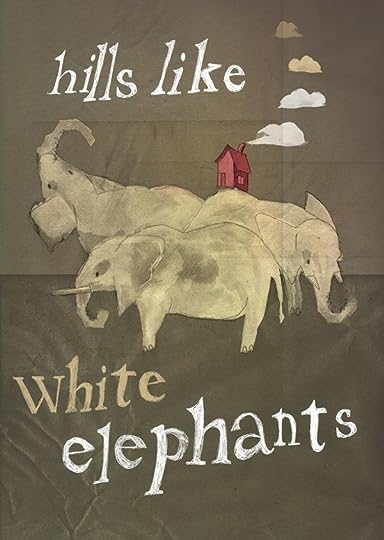Hills like white elephants by Ernest Hemingway
Am I reading in between the lines.

The hills across the valley of the Ebro were long and white. On this side there was no shade and no trees and the station was between two lines of rails in the sun. Close against the side of the station there was the warm shadow of the building and a curtain, made of strings of bamboo beads, hung across the open door into the bar, to keep out flies. The American and the girl with him sat at a table in the shade, outside the building. It was very hot and the express from Barcelona would come in forty minutes. It stopped at this junction for two minutes and went on to Madrid.
Hemingway, Ernest. “Literature in Context.” Virginia.edu, 2024, anthology.lib.virginia.edu/work/Hemingway/hemingway-hills.
why we loved it
First of all, let’s talk about how sneaky Hemingway is in this story! On the surface, it’s just a couple chatting at a train station, but underneath, there’s so much tension. The way he never even says the word “abortion” but makes it super clear what they’re arguing about? Genius! Plus, the dialogue is so natural—it feels like we’re eavesdropping on a real conversation. Honestly, we couldn’t stop analyzing every little detail, and that’s what makes it so fun to discuss.
Next up, the symbolism is chef’s kiss. Those hills looking like white elephants? Perfect. It’s such a simple image, but it carries so much weight—kind of like the big, awkward problem the couple won’t directly talk about. And the train station? A total metaphor for their relationship being at a crossroads. Hemingway packs so much meaning into tiny details, which is why we kept going, “Ooh, did you catch that?” the whole time we were reading.
Finally, we love how this story leaves us hanging. Does the girl go through with it? Do they stay together? Who knows! But that’s the beauty of it—Hemingway trusts us to figure it out (or argue about it forever). Even though it’s short, it sticks with you, and that’s why it’s such a great story to debate. So, if you’re into stories that make you think (and overthink), this one’s a winner!
